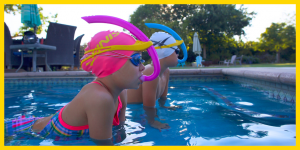Devon Jones, Ritter Sports Performance
February 19, 2019
If you’re a coach, trainer, mentor of any kind within any discipline, you’ve probably recognized by now that you have the unique position to motivate positive change in another persons behavior. Sometimes, however, having to motivate unwilling or unmotivated athletes can take its toll on us. Think of it as running a relay race alone, instead of splitting the difference and sharing the work load, you have to pick up the slack and do it all yourself, all the time. Eventually, that workload can make you a less effective motivator, that which your athlete so greatly needs.
As a coach, we actually feed off of the very motivation that we inspired within our athletes. It’s the gift that keeps on giving.
The Scientific American published an article by Daisy Yuhas entitled ‘Three Critical Elements Sustain Motivation’ and starts off with this statement -“Got motivation? Without it, the long, difficult hours of practice that elevate some people above the rest are excruciating. But where does such stamina come from, and can we have some, too? Psychologists
have identified three critical elements that support motivation…”
She highlights those three key categories in this order:
1) Autonomy
2) Value
3) Competence
Swimming is not a sport you can afford to be mediocre in or lack motivation. Frankly speaking, it requires a minimum amount of abilities and characteristics. Much like cross country running, for example, it can seem pretty straight forward from a broad point of view. Yet any experienced swimmer or runner will tell you it’s about the details that make a huge difference. As a coach, getting your athletes to focus on those details, leaving little to guess work, will undoubtedly increase their level of self competency. Yyuhas has this to say about competency – “In 2006 psychologists at the Democritus University of Thrace and the University of Thessaly in Greece surveyed 882 students on their attitudes and engagement with athletics during a two-year period. They found a strong link between a student’s sense of prowess and his or her desire to pursue sports.”
If you have a talented group of swimmers who have the raw talent to do great things but have never come to realize that if they don’t have the work ethic to back up those talents, they are more likely to give up when things get hard. Compared to those who already have a sense of accomplishment accredited to an invested effort in their craft. Get your swimmers to focus on progress and victories both as a team and as an individual. Being able to see the correlation between the hard work they’ve been putting in day in and day out and its direct benefits, can increase their motivation to stick with it.
The next time you feel like your swimmers aren’t motivated or you don’t have that extra pep in your step, evaluate one or all three of these areas and you most likely will find a red flag. Here at RITTER Sports performance, we have accumulative experience to recognize that motivation is key to stick to your daily/weekly/yearly routine–whether you’re a swimmer or coach, AND we have interviewed thousands of swim coaches to get their take on this very topic/how they’ve built and maintain a GREAT team culture.
Read Original Article
Recent Articles
Dylan Carter
Chelsea Hodges
Lorenzo Zazzeri

Introducing the Stability Snorkel Jr
Share on Social Media


